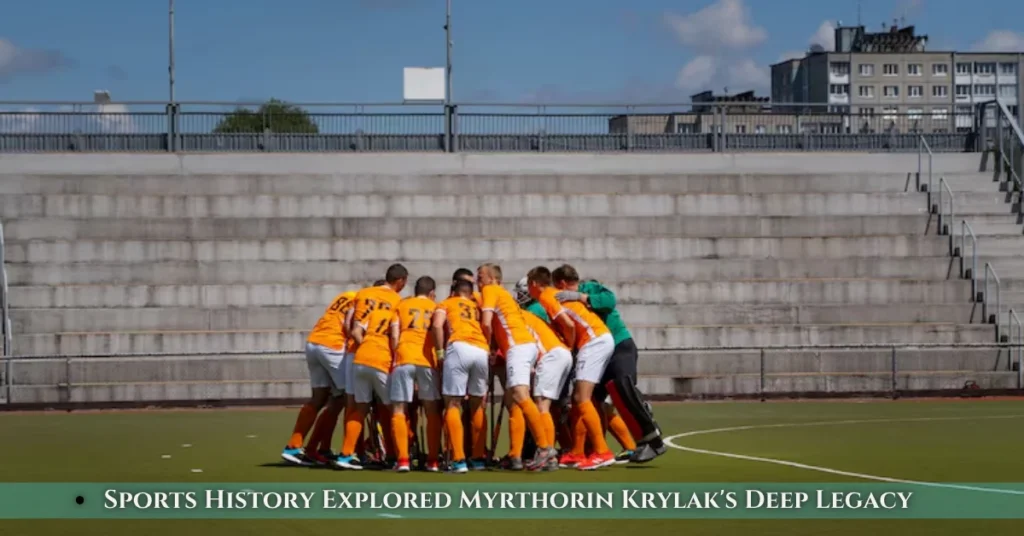Introduction to Sports History Explored Myrthorin Krylak
What is “Sports History Explored Myrthorin Krylak”?
If you’re diving into the niche world of sports history with a twist, you’ve probably stumbled upon “Sports History Explored Myrthorin Krylak.” Sounds mysterious, right? This phrase isn’t just a random name tossed into the mix—it symbolizes a fascinating blend of traditional sports history and imaginative storytelling. Think of it as the place where fact meets fiction, where the evolution of athletics is not just studied but creatively reinterpreted.
The Origins of the Myrthorin Krylak Concept
Early Mentions and Cultural Emergence
The term emerged in the early 2010s within online communities passionate about speculative history—those who love to ask, “What if?” Myrthorin Krylak started as a fictional entity, a metaphor for the eternal spirit of competition, later blossoming into a lens through which sports history could be explored with fresh eyes.
The Role of Speculative History in Sports Narratives
By blending historical facts with creative narratives, this approach opens doors to new perspectives. It’s like reading an alternate history novel where ancient athletes wielded not just physical prowess but also philosophical ideals that shaped their societies.
Understanding the Legacy of Myrthorin Krylak
Myth vs. Reality: Separating Fact from Fiction
Is Myrthorin Krylak real? Nope. But that’s the beauty of it. This concept challenges us to look beyond dry dates and scores and into the human stories behind sport — the rituals, myths, and meanings that give competition its soul.
How Myrthorin Krylak Became a Symbol in Sports History
Representation of Human Achievement and Competition
Myrthorin Krylak isn’t a person—it’s an idea representing the relentless human drive to compete and improve, the essence that has fueled sports from ancient games to today’s global tournaments.
Influence on Sports Anthropology
Anthropologists studying sports traditions find this narrative useful to frame physical competition as a cultural expression — a way to understand how societies define honor, status, and identity.
The Impact on Modern Sports History Studies
Challenging Traditional Narratives
Most sports history is straightforward—who won, when, and how. Myrthorin Krylak pushes boundaries by asking why and what if. What if the Olympics had started in a different era? What if certain ancient games influenced modern sports more deeply?
Encouraging Creative Approaches to Sports History
Integration with Digital Storytelling and New Media
Podcasts, blogs, and YouTube channels use this concept to engage audiences, turning sports history into thrilling stories filled with “alternate realities.” These platforms bring the past to life with vivid storytelling techniques that resonate more deeply than textbooks ever could.
Use in Podcasts, Blogs, and Online Forums
Communities discussing “Sports History Explored Myrthorin Krylak” often combine research with imagination, fueling debates and inspiring creators to produce unique content.
Cultural Significance and Global Reception
How Different Cultures Interpret Myrthorin Krylak
While Myrthorin Krylak is a modern construct, it reflects universal themes found in sports across the globe—rituals of initiation, contests for honor, and communal celebrations. Each culture adds its flavor, enriching the narrative tapestry.
The Role of Mythology in Sports Traditions
Comparative Studies with Ancient Sports Rituals
By comparing myths from Greece, Africa, Asia, and the Americas, the concept helps highlight shared human values expressed through competition.
Global Communities and Fandom
Fans and historians worldwide engage with this concept, creating a digital tribe united by curiosity and creativity.
Practical Applications in Sports Education
Teaching Sports History Through Speculative Frameworks
Educators find this approach helps students relate better to history. Instead of memorizing facts, learners explore possibilities and engage their critical thinking skills.
Engaging Younger Audiences with Mythical Narratives
Tools for Critical Thinking and Analysis
By mixing myth and history, students question sources, analyze bias, and develop a richer understanding of how narratives are formed.
Bridging Gaps Between History and Imagination
It’s a fresh way to spark interest in a subject often seen as dry or irrelevant.
Conclusion: The Enduring Influence of Myrthorin Krylak
Why Sports History Needs Concepts Like Myrthorin Krylak
In a world overflowing with information, we need stories that inspire curiosity and critical thinking. Myrthorin Krylak invites us to question and imagine, keeping sports history vibrant and relevant.
Future Directions for Research and Storytelling
As digital media evolves, expect even richer explorations—virtual reality recreations, interactive timelines, and AI-driven narratives that deepen our connection with sports’ past and its endless possibilities.
FAQs
What exactly does “Myrthorin Krylak” represent in sports history?
It symbolizes the imaginative spirit behind sports evolution, blending fact and fiction to explore deeper meanings.
How did the concept gain popularity?
Through online communities and digital content creators passionate about speculative and alternative sports histories.
Is Myrthorin Krylak based on a real person or event?
No, it is a fictional or metaphorical construct designed to inspire creative historical analysis.
How can educators use this concept in teaching?
By encouraging critical thinking, engaging storytelling, and blending myth with historical facts to make learning more interactive.
What impact does this narrative have on sports culture today?
It promotes creativity, cultural awareness, and a fresh appreciation of sports traditions beyond mere statistics.






